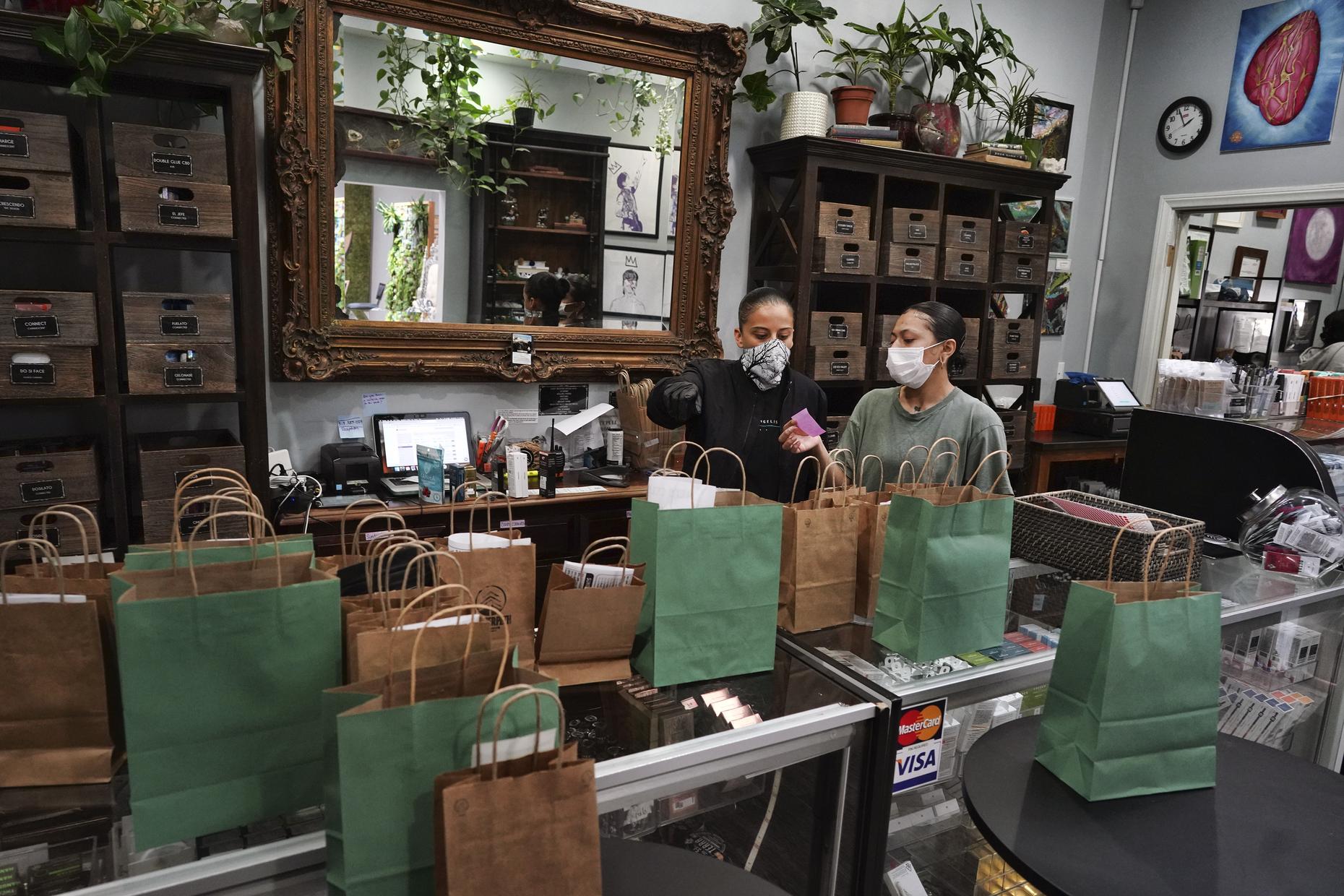As this strange and difficult year comes to an end, it’s easy to forget how transformational it’s been for cannabis.
While 2020 will be defined by the Covid-19 pandemic, it also ushered in a new era where regions deemed weed an essential item alongside groceries and toilet paper.
Legal sales soared in the U.S. — and to some extent in Canada — despite operators having to adjust to a new normal of online purchases, delivery and curbside pick-up.
Legalization spread into new jurisdictions, creating major financial opportunities in the years ahead.
Of course, the global health crisis also accelerated a capital crunch in the cannabis sector that picked off the weakest firms.
In Canada, companies big and small have shuttered greenhouses, laying off thousands amid an ongoing domestic supply glut. Well over a dozen companies filed for bankruptcy protection.
Read more: Canopy shutters 5 Canadian facilities, beverage boss walks
Read more: Aurora shares slump on latest round of job cuts

Aurora Cannabis shut down 75 per cent of production at its flagship facility in Edmonton, Alberta, in December — a move that cost 214 workers their jobs. Press photo
Canadian legal recreational sales are on pace to reach $2.6 billion this year, up from $908 million in 2019.
While the pandemic hampered supply chains, shipments and product rollouts, several polls show that Canadians have been consuming more weed to help cope with a stressful year. Provinces like Biritsh Columbia deeming cannabis businesses essential, and permitting online sales, helped mitigate some of the economic damage.
But to further increase legal market share at a faster rate, retailers have been calling on provincial regulators for better transparency on pricing and to open up online sales and delivery for all stores, pandemic or not.
Read more: Remove OCS advantages to increase Ontario’s legal market share, pot shops say
For producers, they want to see the federal government and Health Canada peel back some its strictest rules to help lure more consumers over from a nimbler, still-thriving illicit market.
The country’s weed regulator is currently taking public feedback until Jan. 11 on proposed amendments for regulations on product labelling, micro-cultivation licensing, possession equivalency limits and a host of other areas.
Read more: Health Canada requests public feedback on amending various strict pot rules
Read more: Health Canada doesn’t understand cannabis: industry-led review session II

Despite Covid-19 complications, California is on pace to reach US$5 billion in legal weed sales in 2020. Photo via Cova Software
South of the border, state-legal cannabis programs saw unprecedented growth in more laissez-faire markets. The fact that weed was declared essential by lawmakers in nearly every state with a legal program helped sales skyrocket since the pandemic began in March.
In Illinois, people lined up in droves to buy the first legal recreational cannabis at the start of the year. Total sales climbed almost every month since then and are on pace to reach US$1 billion this year — despite only 80 stores serving a population of 12.7 million. The market is expected to generate US$3 billion in annual sales as it matures in coming years.
Growth in the Lincoln State illustrates why investors have been flocking to U.S. operators. An index of 20 American weed firms shot up 45.7 per cent, as sales in more mature markets like Colorado, California, Oregon and Washington State will hit new revenue records.
However, an ever-expanding legalization effort in the country will mean more sustained growth. That’s why data firm BDSA projected this year that the U.S. will represent 72 per cent of the US$47 billion in global cannabis sales by 2025.
Shares in most U.S. operators have shot up since Joe Biden was declared winner of the U.S. presidential election, as a Democrat in the White House means major federal reform is more likely to pass in the next four years. A recent Gallup poll showed 68 per cent of Americans support legalization.
In December, the Democrat-controlled U.S. House of Representatives passed the MORE Act, which would essentially decriminalize cannabis in the country. But the bill isn’t likely to become law next year, unless the U.S. Senate flips blue in Georgia’s runoff election on Jan. 5. If Democrats hold power in all legislative and executive branches, major cannabis bills are expected to finally pass, sparking major growth in America as companies will be able to access banks and major stock exchanges for the first time.
Read more: Why the Georgia Senate runoff could reshape North America’s cannabis sector
But even if Republicans hold the Senate, the country’s regulated market is still set to expand rapidly.
Five states passed cannabis ballots in the 2020 election, bringing up the total of states with legal adult-use cannabis to 15, and legal medical pot to 36.
The bi-partisan cannabis ballot sweep is expected to trigger a green wave in neighbouring states — especially in the northeast region. With New Jersey close to launching its regulated recreational market, New York and Connecticut are expected to soon follow with their own legislation, proceeded by Pennsylvania and Maryland.
Legal reform wasn’t just confined to America.
This year, conservative countries Lebanon and Pakistan legalized medical weed and hemp-derived CBD, respectively.
Meanwhile, Mexico and Israel are slated to legalize all uses of the plant by early next year.
Earlier this month, the United Nations voted to remove cannabis from a list that categorized it as one of the most dangerous drugs, setting the stage for further reform around the globe in the years ahead.
Top image via The Neighbourhood Joint in Toronto, Ontario
jared@mugglehead.com















